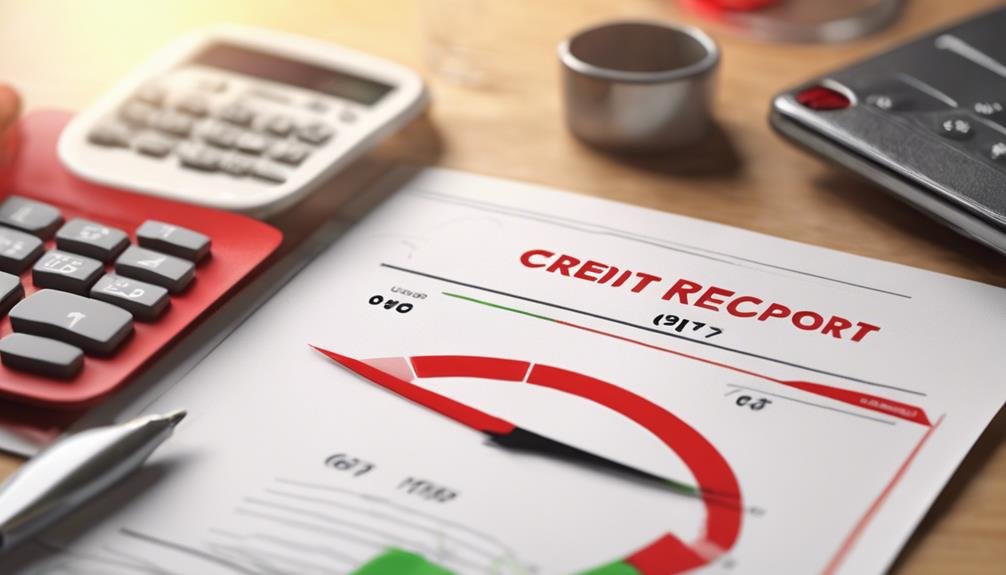What Does a Charge-Off Mean? Effect on Credit Score and How to Remove
A charge-off indicates a debt deemed uncollectible due to delinquency, greatly impacting your credit history. Strategies such as credit repair, debt negotiation, and consolidation can help manage charged-off debts effectively. This negative mark on your credit score can be mitigated through proactive steps and engaging in credit repair. Negotiating pay-for-delete agreements or seeking credit repair services are effective options for removing charge-offs and improving financial standing. Understanding these implications and strategizing accordingly is vital for your creditworthiness.
Key Takeaways
- Charge-off indicates uncollectible debt due to delinquency, harming credit scores.
- Options for managing charge-offs include credit repair, negotiation, settlement, consolidation, or bankruptcy.
- Strategies to remove charge-offs involve negotiation for pay-for-delete agreements.
- Engage with creditors to discuss payment plans or settlements to resolve charge-off debts.
- Implement proactive steps to mitigate the negative impact of charge-offs on credit health.
Charge-Off Definition and Implications
A charge-off, a pivotal financial event, signifies a creditor's acknowledgment of a debt as uncollectible due to a borrower's significant delinquency. When a debt is charged off, it impacts the borrower's credit history negatively. This can hinder future borrowing opportunities and affect credit scores.
To address charged-off debts, borrowers can consider credit repair or debt negotiation strategies. Paying off the debt, negotiating a settlement, or seeking assistance from credit repair companies are viable options. Additionally, debt relief options like debt settlement, consolidation, credit counseling, or bankruptcy can help individuals manage charged-off debts effectively.
It is important for borrowers to take proactive steps to address charge-offs to mitigate their impact on credit scores and financial well-being.
Credit Score Impact and Recovery Strategies
The influence of charge-offs on credit scores can be significant and necessitates strategic recovery measures. When facing a charge-off, engaging in credit repair and debt negotiation can aid in improving creditworthiness. Here is a breakdown of credit score impact and recovery strategies:
| Credit Score Impact | Recovery Strategies | Benefits |
|---|---|---|
| Negative effect on credit score | Engage in credit repair | Improve creditworthiness |
| Limits borrowing ability | Negotiate debt settlements | Resolve debts effectively |
| Hinders credit opportunities | Consider debt consolidation | Simplify debt repayment |
| Potential long-term consequences | Explore bankruptcy options | Obtain financial relief |
Implementing these strategies can help individuals navigate the aftermath of charge-offs and work towards rebuilding their credit health effectively.
Resolving Charge-Off Debt Responsibly
Resolving charge-off debt responsibly requires proactive engagement with creditors and a clear understanding of financial obligations. Negotiation tactics play an important role in reaching a favorable resolution.
When dealing with charged-off accounts, it's vital to explore payment plans that align with your financial situation. Initiating discussions with creditors to negotiate settlements or payment arrangements can demonstrate your commitment to resolving the debt. By proposing feasible payment plans and showcasing a willingness to address the outstanding balance, you may be able to reach a mutually beneficial agreement.
Understanding the importance of negotiation tactics and being proactive in addressing charge-off debt can help you take control of your financial obligations and work towards improving your credit standing.
Removing Charge-Offs: Strategies and Options
To effectively address charge-offs on your credit report, exploring strategic methods for their removal is essential in improving your financial standing and creditworthiness.
Negotiation tactics play an important role in potentially removing charge-offs. One approach is negotiating a pay-for-delete agreement with the lender, where you settle the debt in exchange for the removal of the charge-off from your credit report.
Additionally, credit repair services can assist in guiding the process of removing charge-offs by working with creditors on your behalf to resolve outstanding debts.
Garnishment Laws and Protections
Exploring the legal framework surrounding garnishment and debtor protections provides essential insights into managing financial obligations and safeguarding income.
Debt collection practices often involve garnishment, which instructs a third party to deduct payments from a debtor's wage or bank account. Federal laws set limits on the amount that can be garnished from a debtor's wages to protect their income. Employers are legally obliged to comply with garnishment orders, ensuring that the process is followed correctly. Additionally, some states have additional laws that further limit garnishment to prevent excessive financial burden on debtors.
Certain types of income, like Social Security benefits, are typically protected from garnishment, offering some level of security to debtors facing wage garnishment.
Conclusion
To sum up, managing the aftermath of a charge-off requires strategic planning and responsible debt management. Understanding the impact on credit scores, exploring recovery strategies, and exploring options for resolving charged-off debts are essential steps in mitigating the consequences of financial setbacks.
Remember, when faced with financial challenges, it's important to 'cross that bridge when you come to it' and approach solutions with a proactive mindset.







